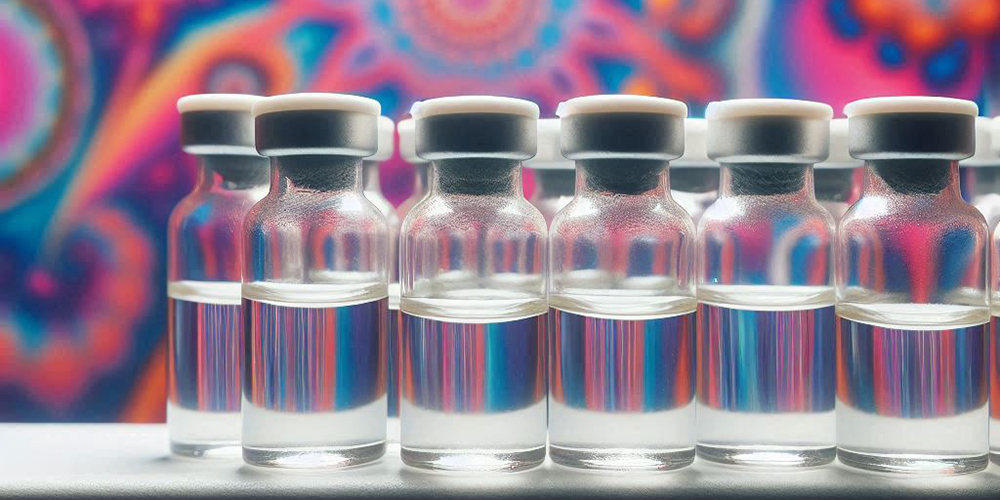LSD microdosing for ADHD: no benefit in a placebo-controlled study
LSD is a well-known hallucinogenic drug, but medical research has also discovered its potential for treating psychological disorders such as depression and anxiety. Now, researchers from the University of Basel have explored whether the substance could also relieve symptoms of ADHD.
31 March 2025 | Shania Imboden
The history of LSD began in Basel in 1943, when Albert Hofman first identified the substance’s psychoactive effects. Within a short time of being taken, the drug alters a person’s perception, feelings and thoughts.
Now, medical research has once again turned its attention to this substance as a potential treatment for various psychological disorders. At high, psychoactive doses, LSD is effective for disorders such as anxiety and depression. However, there is some discussion as to whether microdoses that produce no acute consciousness-altering effects could relieve symptoms of psychiatric disorders or even act as neuroenhancers in healthy persons.
Targeted dosing
Researchers from the University of Basel at the University Hospital Basel and the University Psychiatric Clinics Basel (UPK) have now systematically investigated whether repeated low doses of LSD can alleviate the symptoms of attention deficit hyperactivity disorder (ADHD) as part of the first ever placebo-controlled trial in patients. They have reported their findings in the scientific journal JAMA Psychiatry.
“There have been reports that microdosed psychedelics, including LSD, improve the symptoms of ADHD,” says study leader Professor Matthias Liechti, explaining the motivation for the work. Liechti and his team investigated this alleged effect as part of the first controlled clinical trial, in which 53 subjects aged 18 to 65 and with an ADHD diagnosis took part in a six-week study.
In two randomly assigned groups, participants received either a placebo or a low dose of 20 micrograms of LSD twice a week. Liechti explains that this dose level results in a slight psychedelic effect. It was therefore in the upper range of what is known as a microdose.
The dose was chosen to be high enough to demonstrate a possible effect on ADHD symptoms relative to a placebo but low enough that it produced only slight acute hallucinogenic effects that would not interfere with participants’ everyday lives after taking the substance. There were no serious side effects or health complications. Every two weeks, the subjects completed a questionnaire in order to record changes in their symptoms – such as distractibility – during the study and beyond.
Effects of LSD
After just two weeks, all patients reported an improvement in their ADHD symptoms. However, this effect was similar in the LSD and placebo groups. Almost all participants in both groups were convinced that they had been given LSD, even if they had actually received the placebo.
LSD therefore proved no more effective than a placebo. “Although the placebo effect was clear, it was not exceptionally pronounced in comparison with other studies in patients with ADHD,” says Liechti. Patients probably had excessive expectations relating to the benefits of LSD due to media reports, he says. There is a hype surrounding the substance. Indeed, a significantly stronger improvement in ADHD symptoms was observed in study participants who believed that they had received LSD in comparison with those who thought they had received a placebo.
“The supposed subjective treatment benefit is therefore due to the expectation of a benefit and the placebo effect rather than the actual substance,” says the study’s first author, Dr. Lorenz Müller. This finding underlines the importance of randomized placebo-controlled trials compared with studies without a control group. While not benefical in ADHD, Liechti emphasizes that microdosed LSD could still be effective in other psychiatric disorders such as depressive disorders.
Original publication
Lorenz Mueller et al.
Safety and Efficacy of Repeated Low-Dose LSD for ADHD Treatment in Adults - A Randomized Clinical Trial
JAMA Psychiatry (2025), doi: 10.1001/jamapsychiatry.2025.0044


